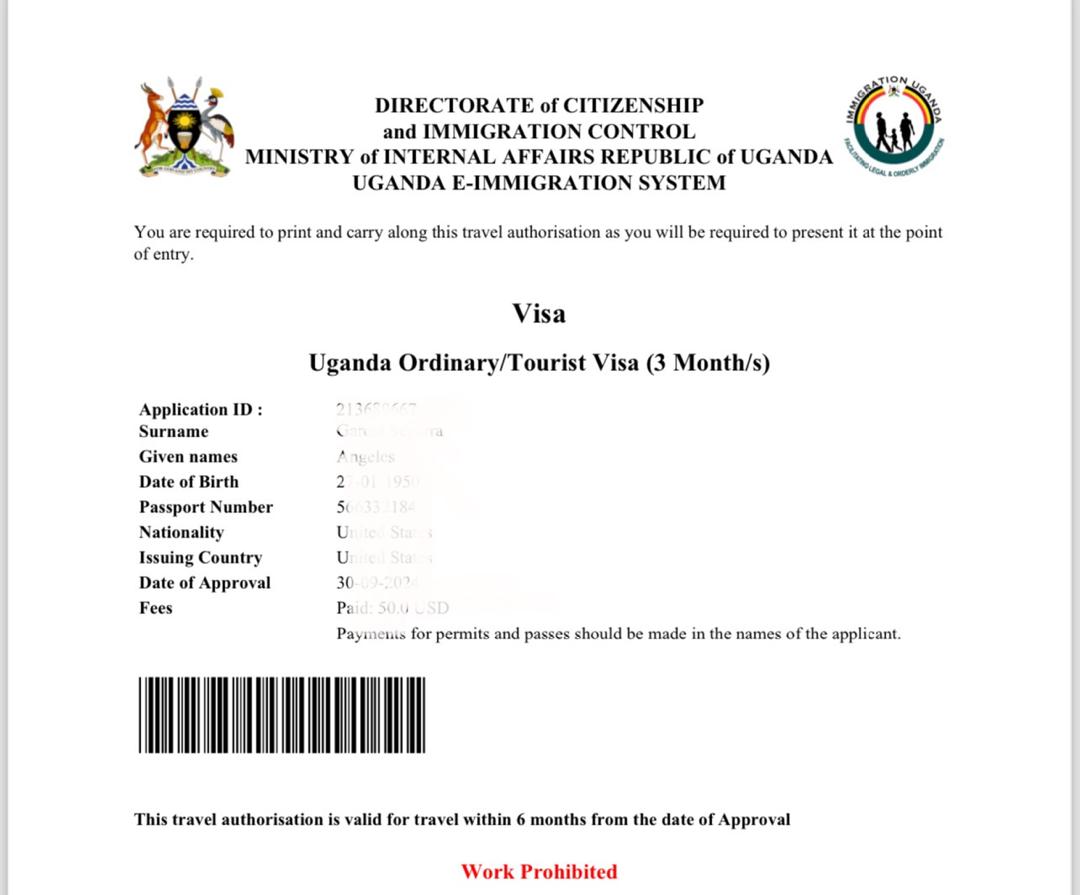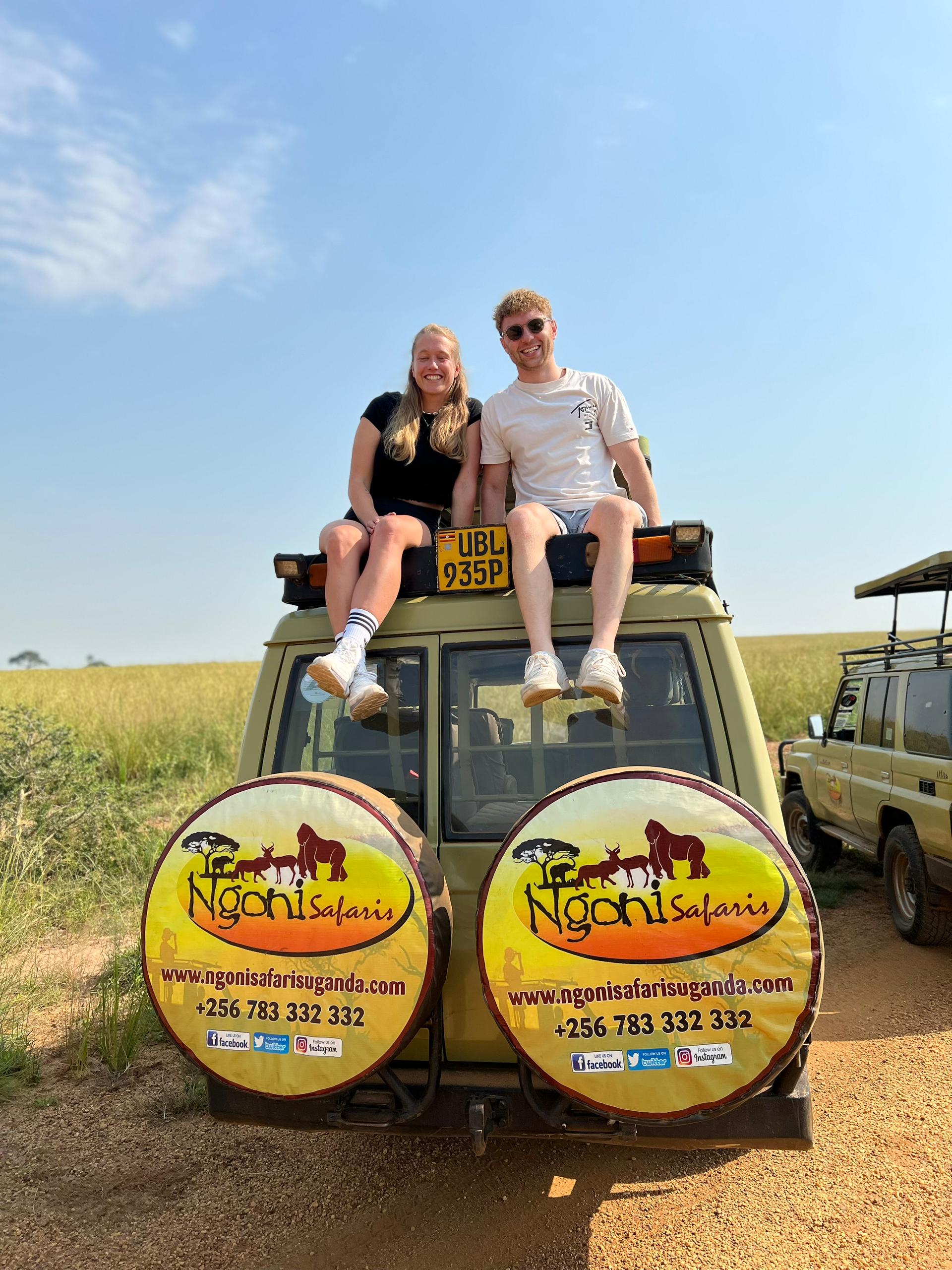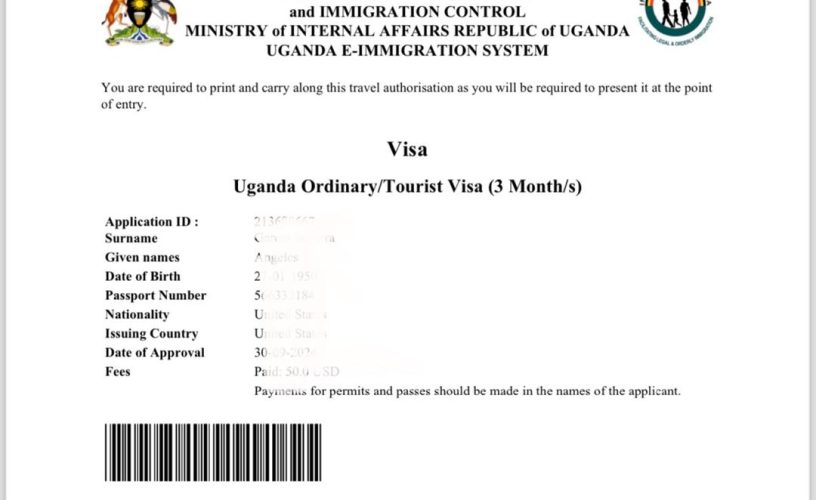Uganda visa on arrival is not allowed.
Introduction to Uganda and its visa policy
Uganda is a treasure trove of natural beauty and cultural richness, often referred to as the “Pearl of Africa.” From its stunning landscapes dotted with national parks to vibrant local traditions, this East African gem attracts travelers from around the globe. However, before you pack your bags for an unforgettable adventure—whether it’s gorilla tours in Bwindi Impenetrable Forest or romantic honeymoon tours along Lake Victoria—there’s an important aspect you need to consider: Uganda’s visa policy.
Recent changes mean that obtaining a visa on arrival is no longer an option for many travelers. Understanding these new regulations is crucial not just for smooth travel plans but also for ensuring you can fully enjoy all that Uganda has to offer without any hitches. Let’s dive into what this means and how you can navigate the process effectively!
What is a visa on arrival?
A visa on arrival allows travelers to obtain their entry permission upon landing in a foreign country. This process typically simplifies travel, eliminating the need for lengthy applications before departure.
When arriving at the airport or border crossing, tourists present their passport and any required documents to immigration officials. If approved, they pay a fee and receive a visa valid for a specific period.
This type of visa is popular among many countries as it encourages tourism by making travel more accessible. However, travelers must ensure that their destination offers this option since policies can vary significantly from one nation to another.
While convenient, it’s essential to check eligibility requirements beforehand. Some nations may have restrictions based on nationality or require additional paperwork even for visas issued upon arrival.
Reasons for the ban on Uganda visa on arrival
The ban on Uganda’s visa on arrival stems from several key factors. One of the primary reasons is security concerns. The government aims to ensure that all travelers undergo thorough vetting before entering the country, helping to mitigate any potential risks.
Another reason is related to immigration control. By requiring visas to be obtained in advance, authorities can better manage and monitor who enters Uganda. This enhances overall national security and keeps track of visitors more effectively.
Additionally, the change reflects a desire to streamline travel processes. A pre-applied visa system allows for improved organization within immigration departments, minimizing delays at entry points.
Economic considerations also play a role; by encouraging travelers to apply ahead of time, it opens opportunities for tourism agencies and local businesses offering services tied to travel preparation. Thus, while it may seem restrictive, these measures are aimed at enhancing both safety and efficiency within Uganda’s borders.
How to apply for a Ugandan visa before arrival
Applying for a Ugandan visa before your arrival is straightforward. First, visit the official Ugandan e-visa website.
You’ll need to fill out an online application form. Be prepared with essential documents like a valid passport, recent photos, and travel itinerary details.
Next, choose the type of visa that suits your purpose—be it tourism or business. For instance, if you’re planning gorilla tours or honeymoon tours in Uganda, ensure you select the tourist visa option.
Once you’ve completed the application and verified all information is accurate, submit it along with payment for processing fees.
After submission, wait for confirmation via email. The typical processing time ranges from 2 to 5 business days. Upon approval, print out your e-visa and keep it handy during your travels in Uganda!

Alternative options for travelers without a pre-applied visa
For travelers who haven’t secured a Ugandan visa prior to their journey, there are still some alternatives to explore. One option is obtaining an e-Visa, which can be applied for online. This convenient process saves time and allows you to receive your travel authorization before departure.
Another possibility includes consulting local embassies or consulates in neighboring countries. They may offer expedited visa services or guidance on how to navigate the application process while abroad.
Travelers can also consider joining a guided tour group that handles visa arrangements as part of their package. These tours often simplify logistics and ensure everything is taken care of ahead of time.
Staying informed about any changes in Uganda’s entry requirements is crucial. Following relevant travel advisories can help you find unexpected options that suit your plans better than anticipated.
Impact on tourism and economy in Uganda
The ban on visa on arrival has significantly affected Uganda’s tourism sector. Tourists often prefer hassle-free travel, and the absence of this option can deter potential visitors.
Since many travelers plan gorilla tours or honeymoon tours around their itinerary, lengthy visa processes may lead to last-minute cancellations. This change can impact local businesses that rely heavily on tourist spending.
Moreover, the economy feels the strain as fewer international tourists means reduced income for hotels, restaurants, and tour operators. The ripple effect reaches artisans and transport services too.
While some might opt for alternative destinations with easier entry requirements, dedicated adventurers still seek experiences in Uganda’s stunning landscapes. However, it’s crucial for policymakers to consider ways to streamline the visa process without compromising security measures in order to remain competitive in global tourism markets.

Conclusion: Importance of staying updated on visa policies when traveling
Staying updated on visa policies is crucial for any traveler. Visa regulations can change frequently, and understanding these changes helps avoid unexpected hassles during your trip. With the ban on Uganda’s visa on arrival, it’s essential to plan ahead.
If you’re dreaming of gorilla tours in the Bwindi Impenetrable Forest or looking to explore Uganda’s stunning landscapes on a honeymoon tour, having your Ugandan visa arranged before you arrive makes all the difference. The process may seem daunting at first, but it secures peace of mind and ensures you have a smoother travel experience.
Travelers should always check official sources or consult with travel experts when planning their trips. This proactive approach not only enhances your journey but also supports local tourism and economies that rely heavily on international visitors. So as you prepare for your next adventure in Uganda, remember that being informed about visa requirements is key to enjoying everything this beautiful country offers without unnecessary stress.
BOOK YOUR TOUR WITH US





